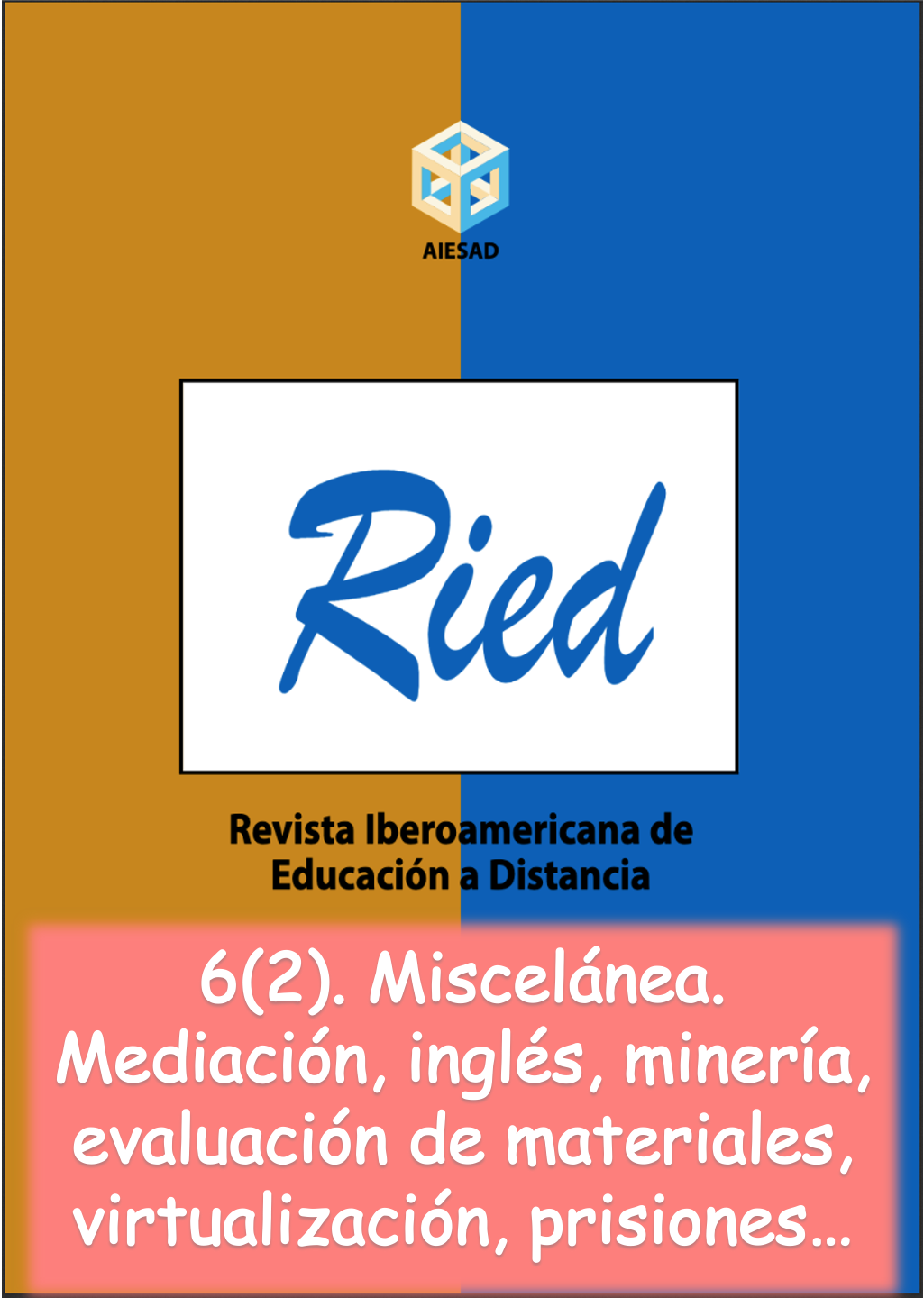SELF EVALUATION IN ACADEMIC PROGRAMS: EXPERIENCE LEARNING IN THE UNED COSTA RICA
DOI:
https://doi.org/10.5944/ried.6.2.2625Keywords:
self evaluation, quality, distance education, accreditationAbstract
Self Evaluation in the Distance Education University of Costa Rica is defined as a participative process between the students, professors, graduates, administrative personnel and employers. The objective of this process is to value and to improve the academic quality of a program. The evaluation is guided by «evaluative components», such as Teaching-Learning Process, Management, Graduates, Development, Academic Personnel, Students. The process is divided in phases that include the preparatory moments (decision, team consolidation, project elaboration), the implementation (research and documentation), the elaboration of the final document, the application of improvement actions and the accreditation. The writer also analyzes the positive and negative experiences in self evaluation in the University.
Downloads
Downloads
How to Cite
Issue
Section
License
The articles that are published in this journal are subject to the following terms:
1. The authors grant the exploitation rights of the work accepted for publication to RIED, guarantee to the journal the right to be the first publication of research understaken and permit the journal to distribute the work published under the license indicated in point 2.
2. The articles are published in the electronic edition of the journal under a Creative Commons Attribution 4.0 International (CC BY 4.0) license. You can copy and redistribute the material in any medium or format, adapt, remix, transform, and build upon the material for any purpose, even commercially. You must give appropriate credit, provide a link to the license, and indicate if changes were made. You may do so in any reasonable manner, but not in any way that suggests the licensor endorses you or your use.
3. Conditions for self-archiving. Authors are encouraged to disseminate electronically the OnlineFirst version (assessed version and accepted for publication) of its articles before publication, always with reference to its publication by RIED, favoring its circulation and dissemination earlier and with this a possible increase in its citation and reach among the academic community.









